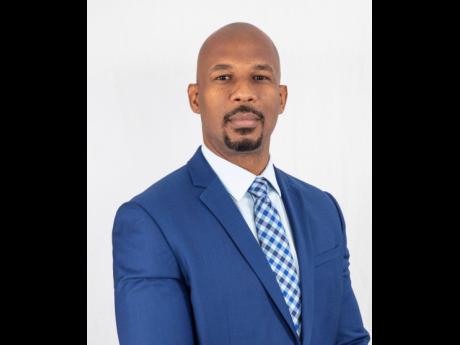Basil Jarrett | Press freedom and corruption: A complicated relationship
CONVENTIONAL WISDOM would suggest that countries with a free press tend to have lower levels of corruption compared to nations under authoritarian rule. The rationale behind this notion, of course, is that a free press acts as a watchdog, exposing corrupt practices and holding those in power accountable.
Examining the case of Jamaica, however, reveals that once again, this country is not a real place as, despite having a fairly admirable World Press Freedom Index, our Corruption Perception Index ranks as one of the worst. And yes, while I am aware that we recently slipped from the dizzying heights of a number 12 ranking, to a somewhat better-than-middling 32, the fact is that we are still better than at least 148 other countries. The point remains, however, that Jamaica challenges the simplistic correlation between a free press and low corruption levels, as we continue to grapple with the problem of high levels of public and private sector corruption.
PRESS FREEDOM STILL HIGH
Despite our recent 20-point fall, Jamaica has made some notable strides in terms of press freedom over the years. We are still ranked relatively high in global press freedom indexes, suggesting that there is a favourable environment for journalists to operate independently, critically and safely. Freedom of expression and media pluralism are still protected by the Constitution and we certainly have a vibrant media landscape, with numerous print, broadcast, and online outlets offering diverse perspectives.
But as we’ve seen, the mere presence of dozens of radio and broadcast media outlets does not guarantee a significant reduction in corruption. This, I believe, is due to several critical factors that hinder the effectiveness of the media in combating corruption in the country.
Before I go any further, let me first acknowledge and salute those truly courageous journalists who continue to stand firm in the face of significant challenges and great personal threats, all in pursuit of truth, transparency and accountability. Organised crime and drug trafficking networks, powerful and influential elected officials, fraudsters, gangsters, conmen and the morally bankrupt are just some of the occupational hazards that often force journalists to self-censor. Genuine fear of reprisals and concerns over personal safety are real impediments to good investigative journalism and undermines the role of the press as a whistleblower. Perhaps the Press Association of Jamaica should consider encouraging journalistic courage by adding a special category for journalistic bravery at its annual awards.
OTHER FACTORS
The other issue facing many media organisations here is the ever-present spectre of limited financial resources hovering overhead. Lack of resources restricts media houses’ ability to conduct comprehensive investigations and dedicate significant time and resources to in-depth reporting on corruption cases. It’s far cheaper to chase breaking news, headlines and likes on Tik Tok. And while Jamaica has legislation in place to combat corruption, detection, implementation and enforcement remain significant challenges. Our legal framework must be strengthened, therefore, to ensure that corrupt individuals face appropriate consequences as without an effective legal system, corruption will thrive.
Society, social attitudes and systematic issues also have a role to play in the high levels of corruption that we are witnessing. Corruption in Jamaica is deeply rooted in our history and sociocultural background. Sprinkle in some widespread poverty, social inequality, and a history of political patronage, and you have the makings of a culture where corruption is not only accepted, but expected. These underlying factors perpetuate corrupt practices, making it difficult for even the most exuberant free press to eradicate corruption solely through their efforts.
PRESS FREEDOM: VITAL BUT NOT ENOUGH
In other words, press freedom is a vital component in combating corruption, but it is not a panacea. Jamaica’s experience, though not unique, underscores the importance of addressing deeper societal and systemic issues that enable corruption to flourish. A multifaceted approach, which includes strengthening the legal framework, combating organised crime, promoting transparency, and addressing social inequality, is necessary to effectively tackle the scourge here.
Don’t get me wrong. A free press is an essential part of any country’s corruption watchdog framework. But for it to work in a more meaningful way, it must do so in conjunction with broader societal changes aimed at building and reinforcing integrity among the population.
Another possible explanation is that press freedom and democracy are complements, rather than substitutes in the fight against corruption. Press freedom and democracy work in synergy, amplifying each other’s impact on reducing corruption. A free press thrives in a democratic society, and in turn, a strong democracy relies on an informed citizenry, which is facilitated by a free press.
Despite the press’ inability to beat corruption on its own, it is in our best interest to ensure that we strengthen, protect and empower our journalists and our news media, even as we move to strengthen our laws, change our culture, address our social inequalities and send more corrupt persons to prison.
Major Basil Jarrett is a communications strategist and CEO of Artemis Consulting, a communications consulting firm specialising in crisis communications and reputation management. Send feedback to columns@gleanerjm.com


